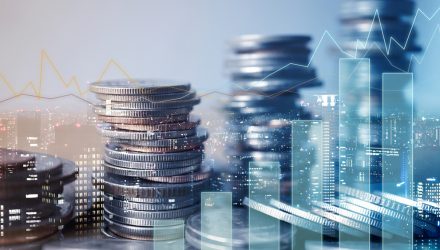Many have extolled the benefits of using exchange traded funds like their cheap and tax-efficient nature, but there are some lesser-known aspects that are equally as important.
Some characteristics of ETFs have been undersold, such as ETFs’ flexibility, relative predictability, tax efficiency in factor or active strategies, and total cost to ownership, according to Ben Johnson, director of global exchange-traded fund research for Morningstar.
Specifically, Johnson pointed out that ETFs’ flexibility is one characteristic that has not been given its due. Similar to the way stocks are traded on a brokerage platform, investors can go long ETF shares, sell short, buy on margin, execute options on them, lend them to others to collect a fee, and more.
“This versatility can attract a very large and diverse investor base that uses these funds in meaningfully different ways,” Johnson said. “The diversity of ETFs’ base of investors and their use cases is the foundation of healthy liquidity in ETF shares, which benefits all investors in the fund.”
Secondly, ETFs come show relative predictability of index-based exposures, compared to traditional active strategies, most notably the elimination of idiosyncratic risks like manager risk. With an index-based ETF, investors can rely on the rules-based indexing methodology to do what it said it has set out to do, whereas investors relying on active managers are subject to the whims of the management team.
“With index funds, there is no need to fret over whether managers might up and leave or lose their touch,” Johnson said.
Tax efficiency has been a major sticking point for ETFs, but investors should also take note of ETFs’ tax efficiency as it relates to high-turnover, factor-oriented, and active strategies. Johnson pointed out that there are 65 strategic-beta ETFs in Morningstar’s database that had a median annual turnover in excess of 100% during the five years through 2019, but there were just 14 capital gains distributions.
“The tax efficiency lent by the ETF structure shines through in the case of high-turnover strategies,” Johnson said.
Lastly, investors should keep in mind that ETFs, like stocks, trade throughout the day, so traders are also subject to the bid/ask spread and potential costs of executing inefficient trades, especially with market orders on ETFs with a wide bid/ask spread.
“Investors should sharpen their pencils to see whether it’s worth incurring these transaction costs,” Johnson added.
For more information on investing in ETFs, visit our ETF 101 category.
